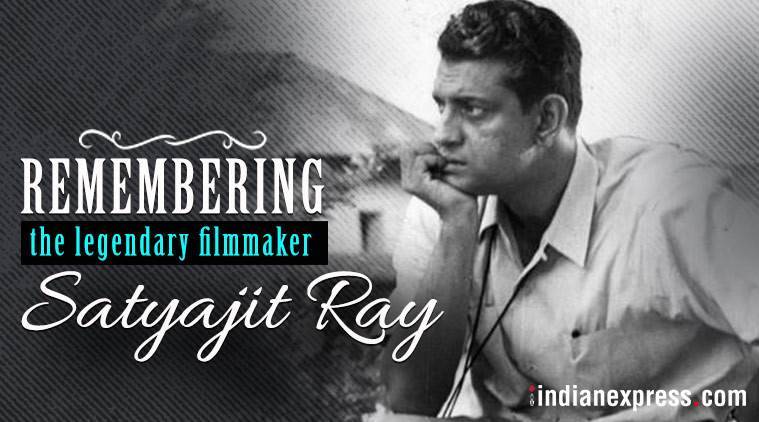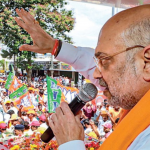The Indian filmmaking legend Satyajit Ray stepped into his 102nd year on May 2, 2023. The maestro died in 1992, at the age of only 71. He left us without finishing many of the proposed film and writing projects which he had undertaken in his last years. Bengal lost not just a great filmmaker, but also a writer of extraordinary calibre, who opened up the Bengali children and adults to a new world of adventure and science fiction in their mother tongue.
I had the good fortune of having one-on-one meetings with Ray in the politically volatile 1960s — thrice at his small flat on Lake Temple Road. The first meeting took place in 1965 after I became the general secretary of the South Calcutta Film Club, with the renowned film director Mrinal Sen as its president. I saw Ray one morning at his flat to invite him for a programme of our film club, which, though new, was attracting the best of Bengali film and writings minds at its ‘addas’. Ray wanted to know more about our programmes, and the films we had shown so far at our club. It must be noted that Ray was the founder of the film society movement in India, and at that time, he was the president of the Federation of Film Societies of India.
Ray was happy that more and more film societies were coming up in Bengal, including in the districts far away from bustling Calcutta. He told me the burgeoning film societies should help improve film appreciation amongst the youngsters, and make them familiar with films from even outside of India. I listened intently to what he said, absorbing every word eagerly. I took this opportunity to inform him that our film club would shortly start working on a script-writing group too, and that we would be in touch with him the next month. As regards attending the programme, Ray regretted that he would be out of Calcutta on the day of our programme, so it would not be possible for him to attend. However, I felt very happy that instead of five minutes which I wanted from him, he gave me more than fifteen minutes.
The next meeting, which took place in late 1966, was most interesting. In May 1966,the film Nayak(“The Hero”) was released and a fierce debate had started among us, the left cultural workers, comparing Uttam Kumar with Saumitra Chattopadhyay. Saumitra was widely known as Ray’s favourite and had already stunned the audience in Bengal and beyond by his portrayal of Amal in Ray’s all-time classic Charulata. To many us who were admirers of Saumitra, Uttam was a big surprise. We were blown away by the way he was used by Ray in the film, in an astounding, never-before-seen manner. The star Uttam was reborn as an actor of peerless calibre.
1966 was a tumultuous year politically. Bengal was seething in anger by May 1966. The food movement had started in a massive scale, led by the left parties. By then the CPI had split and the CPI(M) was formed. Both the left parties, along with others, launched huge movements against the ruling Congress ministry led by P.C. Sen. We all got involved in the anti-hunger agitation. In that milieu, I met Ray at the fag-end of 1966, once again in his Lake Temple Road flat one winter morning. I requested him to write a piece for our film society journal. But it was evident that Ray was having a busy time. So, I decided not to pursue him hard for the writing. But before leaving, I made sure to mention that Nayak had catapulted Uttam to a new pedestal and we never thought that the superstar had such acting abilities.
I had stood up, ready to leave. But Ray told me to sit down. He said what I’d always remember clearly: “I always knew that Uttam had tremendous potential, but only he was not properly used. You know, Nitya, I have worked with many cerebral actors. Uttam did not belong to that category. But what he had was different. He had intuition. It was something special to him. I made use of that. In fact, Uttam helped improve my script immensely by giving me suggestions which came from his instinctive understanding of cinema and stardom.”
Ray later wrote about Nayak and his decision to cast Uttam Kumar in the film. But for the young me of 1966, to get that pearl of wisdom from the filmmaker’s own mouth was eye-opening. I was mesmerised. Those few minutes were precious for me at that age.
After a few days, I went to the morning adda at Mrinal Sen’s flat at Monoharpukur Road and found Saumitra and Subhendu Chatterjee sitting there. Usually, both of them were part of the adda at Sen’s flat and would drop in whenever they were free. I told them I had met Ray earlier that week and we discussed Nayak. Sen was excited:“What did Ray say?” I told him that Ray thought that Uttam was a superb actor and despite not being “cerebral”, he could contribute a lot to the improvement of the film. Sen said that Ray wrote Nayak keeping Uttam in mind and he would not have made that film unless Uttam agreed. Then he said similarly Saumitra was the only choice for Ray as Amal in Charulata. The handsome, youthful and ever-generous Saumitra then said that ‘Manik’da’ knew whom to choose and excepting Uttam, nobody could do such a fantastic job as he did in Nayak.
Much later, in 2013, I came across Ray’s piece on Nayak in the compilation of his writings titled Deep Focus, where he said, “Uttam’s work shows real virtues of grace, spontaneity and confidence. Such a combination is not easy to come by, and it is hard to see anyone taking his place in the cinema of West Bengal in the near future.” This was written after Uttam Kumar’s death in 1980.
How political was Ray? This was a matter of debate among the left-leaning intellectuals and youngsters in 1960s and 1970s. It was often said that Mrinal Sen turned too politically loud and vocal in his films. He made Padatik, Interview, Chorus during these decades, making his political position crystal clear. Other young film makers also were experimenting with political films. Even Ray’s closest friend and film-critic Chidananda Dasgupta was looking forward to a film where Ray would depict the rebellious political mood of Bengal.
What was Ray’s response? Ray did Goopy Gayen, Bagha Byne in 1968.It was released in May 1969. Aranyer Din Ratri was released in 1970, Pratidwandi in 1970, Seemabaddha in 1971 and Ashani Sanket in 1973. Excepting Aranyer Din Ratri, all others have got a firm political message in Ray’s own artistic, humanist manner. GGBB, especially, was an anti-war film in the context of the Vietnam war, in which the peasants of Vietnam were fighting the mighty Americans. The film, originally written by Ray’s grandfather Upendrakishore Ray Chowdury, was taken up by Ray for filmmaking keeping a strong anti-war message in mind reflecting the anti-war ambience of the late 1960s.
In Pratidwandi, the protagonist Siddhartha, played by Dhritiman Chatterjee, says in a job interview that the biggest event in the 20th century was not man’s conquest of space but the fight of the Vietnamese peasants against the US invaders. He knows with this reply, he would not be chosen by the interview board, but his conscience forces him to take the stand. Siddhartha’s personal rebellion was a metaphor for the mood of the disenchanted Calcutta youth in the 1960s.
Ray’s signature topped the list of signatures from among the intellectuals of Bengal who called for an end to US aggression in Vietnam. In 1966, when Bengal CPI decided to come out with a new publication called Kalantar, Ray created the logo — a fantastic, genre-breaking one. In 1961, on the occasion of the Tagore Centenary Peace Festival held by the cultural team of united CPI, Ray drew the logo on the lines of Picasso’s Dove. He was a friend of the left, but he contributed subtly, through his own medium in his own style.
I attended a dinner at Calcutta Club hosted by the Federation in honour of the then Union Information &Broadcasting Minister, Rajbahadur. Ray was the host as the president of the Federation. I saw Rajbahadur simply awestruck when Ray was talking at the dinner table. His baritone voice, impeccable English and the flawless diction ensured captive audience wherever he went. More or less the same scene I saw in Delhi in the mid-seventies during the International Film Festival, when Ray was at a press meet along with other distinguished jury members, including the Italian director Michelangelo Antonioni and the Japanese legend Akira Kurosowa. Possibly, Elia Kazan also was there. Ray was conducting the meet and all the three greats were looking at Ray for guidance. Even the foreign film critics, including some world-famous voices, only focused on Ray at that press meet. Among all these legends of the world cinema, Ray ruled like a gentle king.
I had the good fortune of attending a lecture by Ray on the evolution of British cinema at Academy of Fine Arts in Calcutta. Very senior British officials and a few foreign film critics were present. Ray, in his more than one-hour-long speech, went in-depth into the gaps and weaknesses of the British film directors and explained in brief how they failed the British working classes. In the process, he dived deep into the social history of Britain. The Britishers were astounded. They had never come across such detailed assessment of the British films from their own critics. It was a once-in-a-lifetime experience for them. If Ray wanted, he could have been a world-class film historian and film critic.
In 1992, I was at the Hindustan Times in Delhi as business editor. Reports were coming about Ray’s critical condition in a private hospital. He was awarded the Oscar for life-time achievement, his glorious work summed up succinctly by the elegant Audrey Hepburn in America, while Ray received the award in his hospital cabin. A frail Ray cold not even hold the Oscar trophy properly. At HT, our editor wanted the obit piece to be ready. Dipta Sen, the senior editor at that time, was given the task to write it. Sen consulted me and I gave a few points. He kept the edit ready.
Then the final news of the passing away of this legend arrived. The edit was sent to the press. Next morning, when I scanned the papers for Ray tributes, I was happy to note that our edit was the best among the English-language Delhi papers. Of course, Calcutta papers were equally good in their assessments of the son of Bengal whom they had just lost. . The filmicon and his ideas have become more relevant, three decades later. (IPA Service)

 Farmers Of Karnataka Resolve At Their Meet To Defeat BJP In Assembly Polls
Farmers Of Karnataka Resolve At Their Meet To Defeat BJP In Assembly Polls 